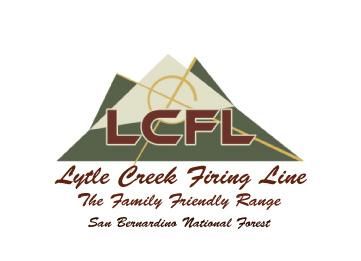Advocacy Action: A Powerful Tool for People with Spinal Injuries
- Home
- Journal
- Veteran’s Organizations
- Advocacy Action: A Powerful Tool for People with Spinal Injuries
Although organizations are catering to spinal cord advocacy, it is crucial to understand that every spinal cord injury is unique, and the needs of the patients may be different too. If you find no resource available to help you cope with your situation, you can become an advocate for yourself.
Advocating for Spinal Injuries to Help Yourself and Others
Advocating for your medical needs is important in communicating with relevant spinal cord advocacy associations, such as United Spinal Association and other organizations. It can help raise your voice and bring pertinent policies that would assist you and people living with similar conditions as yourself.
In the United States, there are more than 17,000 new spinal cord injuries each year, and reports suggest that the country’s leading cause of spinal injuries is car accidents. Around 250,000 to 368,000 people live with a spinal cord injury in the states. It is scary to learn that you’ll never be able to walk again or perform daily activities as you used to before the injury.
However, communities out there help advocate for spinal cord injury patients. In 1995, Cristopher Reeves, an actor that gave life to the fictional superman character, suffered paralysis from the shoulders down, restricting him to a wheelchair and a ventilator for the rest of his life. The injury helped Reeves understand that in the 1990s, there was not much support for spinal cord injury patients. He lobbied for spinal injury research and raised his voice for better insurance coverage for people with disabilities.
Reeves is an example of many that helped create a community among spinal injury survivors. Today, that community is stronger than ever, with several not-for-profit organizations that strive to support a better quality of life for people with spinal injuries. If you’re a spinal injury survivor, you must become an advocate for yourself and your medical needs.
Why Should You Become an Advocate for Your Spinal Cord Injuries?
Although organizations spend millions in financial resources each year on spinal injury research, no one knows the injury better than the person suffering from it. Your doctor may not understand how you feel or what you’re feeling, making it challenging for them to provide treatment according to your medical needs.
Your advocacy efforts can help medical professionals understand your medical needs. Maybe you’re suffering from conditions your doctor does not know. It is essential to be proactive and learn more about your injury, so you can better help others understand your situation and cater to your medical needs.
For example, if your doctor or medical team is not aware of how your body reacts to the injury, they may not understand what to do in case of an emergency. Paralysis Resource Center helps create wallet cards for people with spinal injuries that contain essential information that would assist medical providers with emergency preparedness. Being prepared in an emergency and knowing a spinal cord patient’s medical status can help save their life.
How to Become an Effective Advocate in Your Community
Let’s go over how you can become an effective advocate.
Become a Grassroots Advocate
Grassroots advocates are much different from lobbying, which registered lobbyists run. Becoming a grassroots advocate means using your voice and story to reach local, state, or federal agencies, helping create awareness about the issues affecting spinal cord injury patients.
A grassroots advocate is responsible for educating policymakers, building influential relationships, being part of positive change, and advising on life-altering decision-making. You can reach out to United Spinal Association for further information.
Know Your Rights
Knowing your rights can empower you and strengthen your confidence to ask for the changes you seek. Over the past few decades, advocates have pushed for legislation to improve the lives of individuals with disabilities. Some of these include:
- Americans with Disabilities Act (ADA): ADA is an act that prohibits discrimination based on disabilities.
- Requires employers to ensure reasonable accommodation for people with disabilities seeking employment or working at an organization. It also prohibits employers from discriminating against an employee because of their disability.
- Requires public services to cater to the needs of people with disabilities.
- Requires newly constructed buildings to ensure wheelchair accessibility and other facilities that improve accessibility for the disability community.
- Requires telecommunication companies to provide telecommunication relay services to help assist people with disabilities in communicating.
- Protects people with disabilities from other people wishing to exert harm upon them.
- Affordable Car Act (ACA): During the Obama administration, the ACA became the most significant legislative overhaul of US health care.
- Prohibits insurance companies from denying coverage for individuals with pre-existing conditions.
- Prohibits insurance companies from overcharging people with pre-existing conditions.
- People with disabilities can now access essential health benefits such as hospitalization, emergency care, pediatric services, and more.
- Additional preventive care for women.
- Health insurance platforms in all states allow people to purchase insurance plans from public or private institutions.
Besides ADA and ACA, many other legislations provide protection and disability rights to people with disabilities, such as Fair Housing Act, Rehabilitation Act, Air Carrier Access Amendments, and more, so they can live successful lives.
Understand the Legislative Process
An advocate needs to understand the roles of their elected representatives and how they can help you and your community. You can start locally and move your way up to the federal level, engaging with Congress and other federal agencies.
A single individual can significantly impact the federal level by bringing important issues or concerns to light and asking representatives to issue laws or implement regulations to address those concerns.
Explore Political Engagement
Before reaching out to a legislator, it is important to be informed and prepared. For effective advocacy work, there must be clear communication, which requires you to ensure consistent communication. You must also ensure that the legislator knows you’re committed to the cause.
Take on the Virtual World
Social media is a great way and tool for virtual advocacy. You can stay connected with relevant representatives, keep track of upcoming events, and stay updated on the progress of relevant legislation. Empowering people with disabilities through social media posts and sharing stories can help them live fulfilling lives.
Share Your Spinal Cord Injury Story
If you want to bring change to society, the most powerful tool at your helm is sharing your story. The stories spinal injury patients share are unique and have the power to motivate other people to support the community and influence other people’s lives.
Some of the resources you can use as part of your advocacy tools include:
- United Spinal Association
- United Spinal phone number: (718)-803-3782
- VetsFirst
- VetsFirst phone number: (800)-404-2898
- NewMobility
- NewMobility phone number: (800)-404-2898 ext. 7203
United Spinal Association: Establishing Grassroots Advocacy Network
United Spinal Association is a non-profit organization that works with government agencies and other partners in ensuring a successful life for people living with spinal injuries, from putting forward legislation to raising your voice, providing additional information and resources, conducting events, and more.
United Spinal Association helps its members at the grassroots level, helping them engage by sharing their stories with the community and working toward shared goals that would enable people with disabilities to live independent and happy lives. Advocacy for spinal injuries has led to fruitful long-term outcomes such as better insurance coverage, fundraising events, access to public facilities and transportation, and much more.
Join Paul Ehline Ride and Our Struggle for Justice
Although many groups are working towards improving the lives of people with spinal injuries, it is also important to receive financial assistance to ensure better healthcare and treatment. You may qualify for compensation if your spinal injury is due to another’s negligence.
Get in touch with Paul Ehline Ride, a registered non-profit organization that helps create awareness and struggle for justice for people and vets who have a disability or service-related illnesses. Contact us at (310) 622-8719 for more information.
Resources
General Stuff
Address
Paul Ehline Ehline Memorial Ride
3838 W Carson St.
Torrance, CA 90503
Phone : (310) 622-8719
© paulehlineride.org. All rights reserved.
Donations submitted through donation forms on PaulEhlineRide.Org are tax-deductible to the fullest extent allowed by U.S. and state laws. These will be in U.S. Federal Reserve Notes. Paul Ehline Memorial Ride™ is a U.S. nonprofit, tax-exempt charitable Section 501(c)(19) organization that benefits US Armed Forces veterans under the U.S. Internal Revenue Code. (Tax identification number 85-4040563.)





